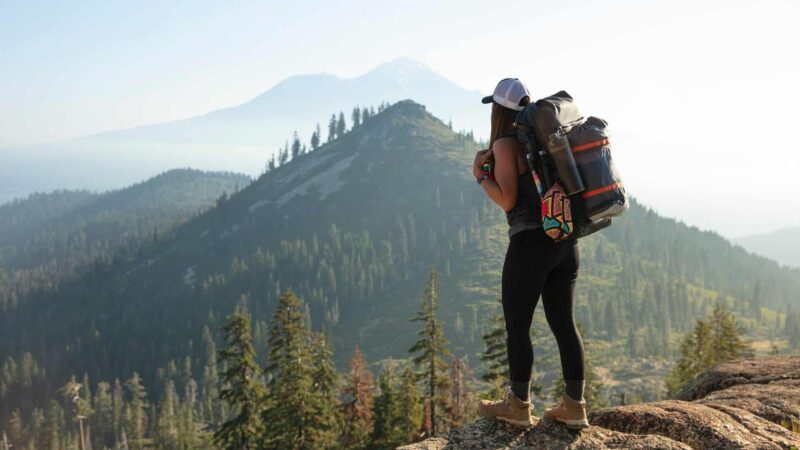Ecotourism, a form of responsible tourism that combines discovery with environmental preservation, continues to gain momentum in Morocco, positioning itself among the most promising trends of this summer season.
Rich in the diversity of its natural landscape (mountains, oases, forests, desert, beaches, etc.), Morocco offers national and foreign travelers the opportunity to experience authentic and sustainable experiences, particularly through a deep immersion in ecosystem conservation and active support for local communities.
Moreover, the Kingdom is counting on a significant rise in ecotourism this summer, especially with the awarding, by the Mohammed VI Foundation for the Protection of the Environment, of the international “Blue Flag” label to 27 beaches, 4 marinas, and for the first time in Morocco, to a mountain lake.
These include the beaches of Oued Laou, Essaouira, Arekmane, El Haouzia, Sidi Rahal 4th phase, Bouznika, Ba Kacem, Mdiq, Rifienne, Sidi Ifni, Saïdia Municipal, Saidia West Tourist Station, Dalia, Achakar, Bedouza, Safi Municipal, Souiria Lakdima, Aglou, Imin Tourgha, Oum Labouir, Foum el Oued, Skhirate, Sidi Abed/El Jadida, Les Nations, Aïn Diab extension, Al Minaa, and East Marina Smir, the Foundation specified in a statement.
Also, the “green lake,” Aguelmam Azigza, located in the Khénifra National Park, as well as the ports “Tanja Marina Bay,” “Saïdia,” “East Marina Smir,” and “Al Hoceïma” are labeled “Blue Flag” during this summer period.
**Tourism: The Time is for Sustainability!**
More than ever, the Moroccan tourism industry, which relies on the wealth of the Kingdom’s natural and cultural resources, is oriented towards promoting actions and initiatives based on sustainability to minimize negative environmental impact.
This was affirmed by the Minister of Tourism, Handicrafts, and Social and Solidarity Economy, Fatim-Zahra Ammor, in an interview with MAP. “Today, the growing trend towards ecotourism reflects an increased awareness of environmental issues and the responsibility to protect our resources. Tourists, just like local residents, now aspire to environmentally friendly tourism that respects local communities,” she said.
In this sense, the minister noted that this shared quest for experiences combining discovery, support for local communities, and reduction of carbon footprint has become an essential trend.
She also pointed out that the 2023-2026 Tourism Roadmap, which aligns with the national sustainable development strategy in Morocco, places sustainability at the heart of its concerns.
This roadmap is structured around several thematic sectors, including those focused on ecotourism such as “Nature, Trekking & Hiking,” “Desert & Oasis Adventure,” and “Cultural Circuits.” It also integrates a transversal sector entirely dedicated to sustainable development, to encourage eco-responsible practices.
And it is in the same spirit that the “Go Siyaha” program, launched last February, offers tourism businesses the opportunity to opt for energy transition, with support covering up to 40% of investments in environmentally friendly technologies.
Furthermore, the “Forests of Morocco 2020-2030” strategy plays a crucial role in protecting forest areas and enhancing these ecosystems through the creation of ecotourism development projects.
Thus, sites like Michlifen, Moudmame, and Ras El Ma, located in the Ifrane National Park, are being developed with infrastructure tailored to the needs of visitors, including rest areas, hiking trails, and relaxation and picnic spaces, to offer an attractive and sustainable ecotourism experience.
With such dynamics, Morocco seems well positioned to become a leading ecotourism destination, attracting visitors concerned about nature and eager to discover the hidden treasures of the Kingdom.


